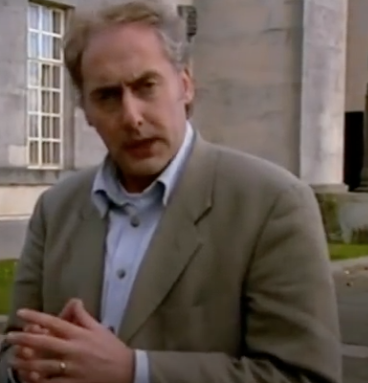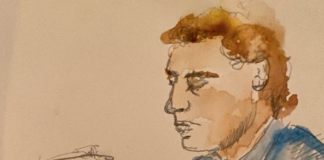- Dark speak easy part one - 18th February 2026
- X marks the spot again - 17th February 2026
- Wordy again part three - 16th February 2026
 After spending 23 years with the BBC, and a career lasting 38 years, here our Editor, Welshman Phil Parry, emphasises a key journalistic skill – spotting the links between stories, as news that the largest police service in the UK has been put in ‘special measures’ following a series of scandals, puts added pressure on the biggest force in Wales, which was responsible for a string of miscarriages of justice, and gives more weight to calls for a legal inquiry into what happened.
After spending 23 years with the BBC, and a career lasting 38 years, here our Editor, Welshman Phil Parry, emphasises a key journalistic skill – spotting the links between stories, as news that the largest police service in the UK has been put in ‘special measures’ following a series of scandals, puts added pressure on the biggest force in Wales, which was responsible for a string of miscarriages of justice, and gives more weight to calls for a legal inquiry into what happened.
Earlier he has described how he was helped to break into the South Wales Echo office car when he was a cub reporter, recalled his early career as a journalist, the importance of experience in the job, and making clear that the ‘calls’ to emergency services as well as court cases are central to any media operation.
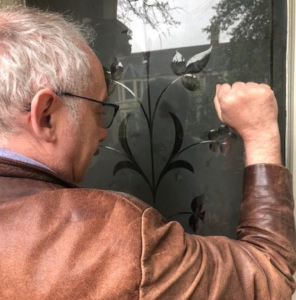
He has shown how poorly paid most journalism is when trainee reporters had to live in squalid flats, the vital role of expenses, and about one of his most important stories on the now-scrapped 53 year-old BBC Cymru Wales TV Current Affairs series he presented for 10 years, Week In Week Out (WIWO), which won an award even after it was axed, long after his career really took off.
Phil has explained too how crucial it is actually to speak to people, the virtue of speed as well as accuracy, why knowledge of ‘history’ is vital, how certain material was removed from TV Current Affairs programmes when secret cameras had to be used, and some of those he has interviewed.
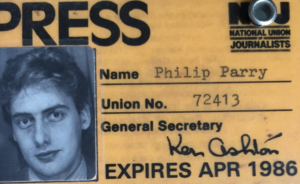 He has also disclosed why investigative journalism is needed now more than ever although others have different opinions, and how information from trusted sources is crucial at this time.
He has also disclosed why investigative journalism is needed now more than ever although others have different opinions, and how information from trusted sources is crucial at this time.
There are a number of crucial skills you must have as a journalist, but perhaps the most important is to be able to spot connections.

For example a high-profile corruption trial in London, might focus attention on corruption you have uncovered, closer to home in Wales.
So it is with news which has just broken.
The Metropolitan Police (Met) has been placed in ‘special measures’ after a litany of “systemic” failings, with tens of thousands of crimes going unrecorded and errors in stop and search.

The agency which did it, HM Inspectorate of Constabulary (HMIC), cited a series of scandals – from the murder of Sarah Everard by the serving Met officer Wayne Couzens, the strip-searching of innocent children, stop and search controversies such as that of the champion athlete Bianca Williams, and offensive attitudes among officials revealed by racist messages exchanged between officers at Charing Cross Police Station. It also noted the “seemingly incomprehensible failures to recognise and treat appropriately a series of suspicious deaths…”.

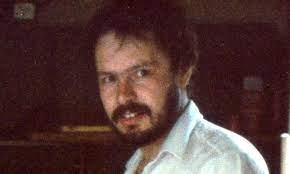
The ‘special measures’ notification specifies, too, the handling of the Daniel Morgan case.
Mr Morgan (who grew up in Monmouthshire), was murdered with an axe in a pub car park at Sydenham, London, in 1987. Despite several investigations, arrests, and a trial, the crime remains unsolved and an independent review into the handling of the investigation of the killing, published in 2021, found that the Met had “a form of institutional corruption”, concealing or denying weaknesses in the case.
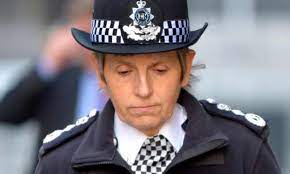
The review included criticism of then Metropolitan Police Commissioner Cressida Dick, for failing to provide access to information over a seven year period. The HMIC has added to growing concern about this case, and says: “The gravity of the matter is amplified by the presence of a relatively young, inexperienced workforce”.
All of this shines the spotlight, as well, on what has gone wrong in South Wales.
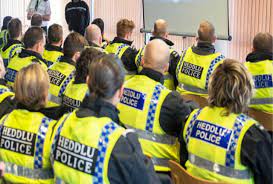
The largest police force in Wales (South Wales Police [SWP]) was responsible for a series of miscarriages of justice, and critics argue that the huge number of these scandals mean this organisation should ALSO be put in ‘special measures’.
The list includes, The Cardiff Three, The Cardiff Newsagent Three, The Darvell Brothers, Jonathan Jones, as well as Annette Hewins, but this does NOT have on it all those who were convicted wrongly for less important crimes, yet who now have a record which will affect them for the rest of their lives. There are now growing calls to scrap SWP altogether.
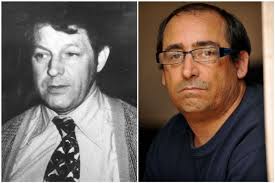
One of those jailed wrongly says what has happened to the Met, should happen with SWP too.
Mike O’Brien (one of the so-called Cardiff Newsagent Three) told me: “Due to the number of scandals in relation to South Wales Police, they too should be put in special measures, because of the number of miscarriages of justice, followed by a full judicial inquiry”.
Mr O’Brien has organised a Media Conference (MC) to be held in the Autumn to press for that inquiry. He wants an official investigation into the actions of SWP from the late 1980s to the 2010s, because of the number of miscarriages. The MC about what took place in South Wales is on October 12 in Cardiff’s Norwegian Church Arts Centre at 11 am, and has been organised by Mr O’Brien to coincide with the murder 35 years ago of a newsagent in the city, called Phillip Saunders, for which he was wrongly incarcerated, before his innocence was established.
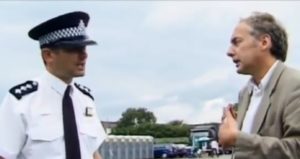
During the 1990s I was regularly approached by solicitors saying that bad things were happening in South Wales, and that something had to be done.
I will be talking at the MC too, and several television programmes have been made looking at the recent events.
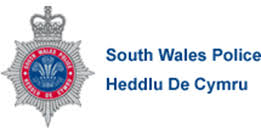
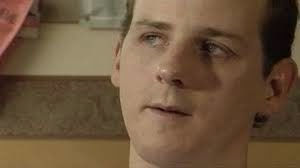
Earlier this year, another was broadcast examining Mr O’Brien’s story in detail. The promotional material before the programme, declared: “Episode One Monday 23rd May at 9pm Raphael Rowe delves into the brutal murder of Cardiff newsagent Phillip Saunders in 1987. The episode examines the investigation that led to the conviction of three innocent men, which resulted in their wrongful imprisonment. The episode reveals shocking police threats and coercion that led to the arrest and incarceration of Michael O’Brien, Ellis Sherwood and Darren Hall. After the men had spent more than a decade behind bars, a court appeal quashed the original verdict, but the unsolved case continues to haunt the city. Plus, for the first time ever, the victim’s sister and nephew break a 35-year silence and reveal exclusive insights into the case”.
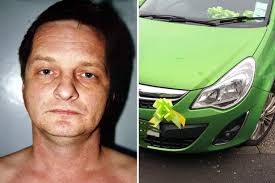
Sky documentaries were also transmitted earlier this year, called Murder in the Valleys (MITV), looking into the appalling Clydach murders in 1999, which is not (in theory) a miscarriage of justice case, although the man convicted of them (David ‘Dai’ Morris) died last year still protesting his innocence.
Mr O’Brien, has been severely affected by being imprisoned for 11 years for something he didn’t do, and appears on MITV saying that he believes the conviction of Mr Morris is a FURTHER miscarriage of justice. He told the MITV documentary-makers: “When I was released from prison I remember… saying ‘I’m going to be South Wales Police’s worst nightmare for what they did to me’, and I meant every word of it”.
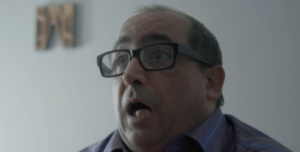
In a formal interview for MITV (they wouldn’t do one with me!), Assistant Chief Constable (ACC) of SWP, David Thorne, made a startling admission, about the mistakes that were made by the police in the earlier miscarriages of justice.
During filming for the programme Mr Thorne appeared on, a forensic review found traces of DNA on a sock which it is believed was used to hold the murder weapon, that were “likely” to have come from Mr Morris, and SWP trumpeted the finding. They effectively said: ‘We know we got it wrong in the past, but this time is different. Trust us’.

ACC Thorne acknowledged: “It’s safe to say we got it wrong (in the past). We absolutely got it wrong. There were HUGE errors in the way investigations were conducted (but) we HAVEN’T found that in this case. This is not a miscarriage of justice”.
I made a BBC Panorama television programme about the Clydach Murders three years after they had occurred, and I was the first to question the police actions during the investigation. As I said in the opening of the programme: “One police force in Britain has a disturbing record of locking up the wrong people in murder cases”.
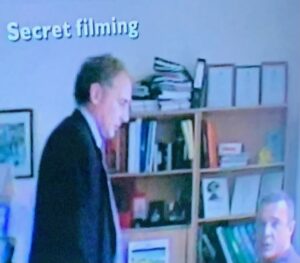
During MITV, the Senior Investigating Officer (SIO) at the time, Detective Superintendent (DS) (Retd.) of South Wales Police (SWP) Martyn Lloyd Evans, is questioned about the apparent mistake of not releasing to the public a witnesses E-Fit constructed soon after the murders, which, it said, had a 90 per cent likeness. He replies that because the man seen was carrying a bag, and it was believed the killer did not have one, it was not put out.
Mr Evans said: “I didn’t think it was relevant”, but the E-Fit matched almost exactly the face of the first senior police officer on the scene, Inspector (at the time) Stuart Lewis, who (against all procedure) had only stayed there a matter of minutes, or that of his identical twin brother (another police officer, Sergeant [also at the time] Stephen Lewis, whose wife was having a gay affair with one of the victims).

Inspector Stuart Lewis, had changed his shift to be on that night, however at crucial hours during the murders his whereabouts were unknown. He was driving a red Peugeot diesel, and a car similar to this was spotted near the murder scene.
So to say the E-Fit was ‘not relevant’, appeared bizarre in the extreme.
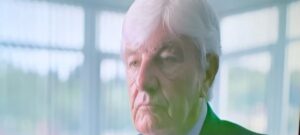
In the MITV films Mr Evans’ boss as the then head of SWP CID, Wynne Phillips, also said something incredible: “We can’t manufacture evidence”. But events before the murders, showed that SWP have done EXACTLY that.
To take just one of those cases (in which I was intimately involved, because I had made ANOTHER programme questioning THAT conviction [The Cardiff Newsagent Three]), the police MANUFACTURED (as Mr Phillips said they DIDN’T do) an overheard ‘confession’ between the young men they had arrested, when an admission was effectively made to the murder of the newsagent, and they presented before the court ‘EVIDENCE’ that the group had run from the scene, but one of the three had bad legs and couldn’t run at all.
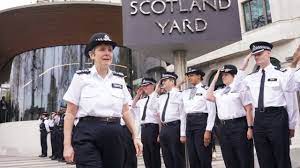
Now campaigners will point to the fact that what has happened to the Met, is more evidence the same should occur to SWP.
They believe that this force, as well, should be put in ‘special measures’…
The memories of Phil’s decades long award-winning career in journalism (including some of the miscarriages of justice he has uncovered) as he was gripped by the rare neurological condition, Hereditary Spastic Paraplegia (HSP), have been released in a major book ‘A GOOD STORY’. Order it now!

Publication of another book, however, was refused, because it was to have included names.
Tomorrow – how controversial BBC Wales has stressed the importance of a new appointment who joins as they “bring the magic of the World Cup from Qatar”, although it may be problematic for her to go to the country because homosexuality is illegal there, but the executive is herself gay, and she has publicly declared her support for a political party yet will broadcast an impartial news service.








